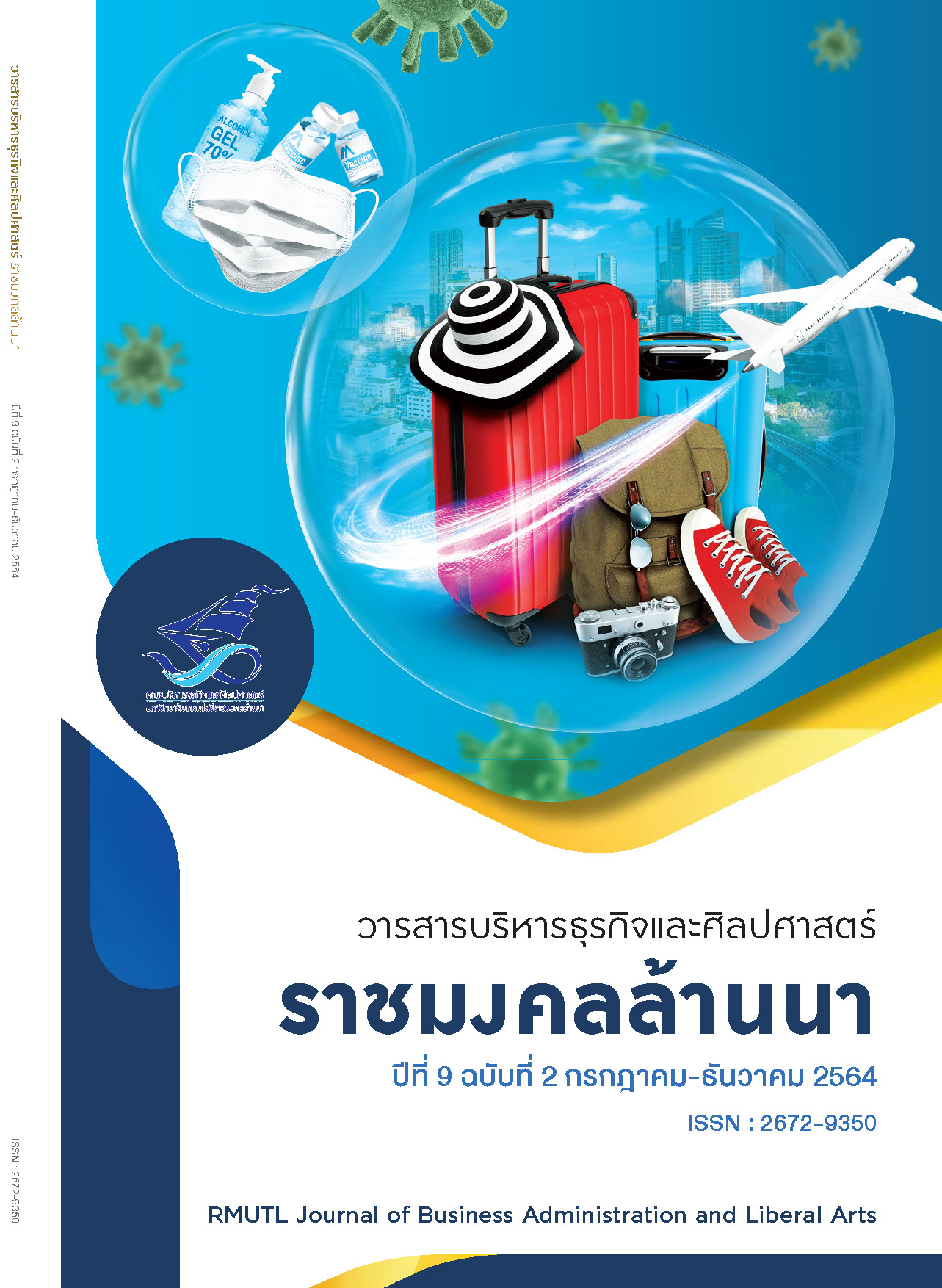Guidelines for Community Business Management of Baan Mae Kee Mook, Mae Jaem District, Chiang Mai
Main Article Content
Abstract
The objectives of this research were to study community context and develop a model of community business management. The 17 participants were selected from community leaders and group leaders in Baan Mae Kee Mook Community, Amphur Mae Jaem, Chiang Mai through a specific sample selection method. The data were collected by using an interview schedule concentrated on community business management. The participants, who were involved in community business management, were requested to take part in analyzing the content, arranging and presenting it in verbal speech. The results showed that the community had a strong and reliable leader and knowledgeable members full of useful local wisdom. The location of the community was suitable for farming despite the problems of drought and air pollution. In terms of community business organization, some business groups were formed, but there were not any concrete operations. As for the guidelines for community business management, they should start with the preparation of community master plan. Besides, there should be structure designing, application of marketing principles to help develop community products, encouragement of knowledge and local wisdom, and appropriate usage of community funds in order to support learning and correct way of thinking in the community, build strength and self-reliance, and enable the community to develop into a successful community enterprise group in the future.
Article Details
บทความวิจัยนี้เป็นของลิขสิทธิ์
References
กองบริหารงานวิจัยและประกันคุณภาพการศึกษา. (2560). Thailand 4.0 โมเดลขับเคลื่อนประเทศไทยสู่ความมั่งคั่ง มั่นคง และยั่งยืน. จาก http://www.libarts.up.ac.th/v2/img/Thailand-4.0.pd
กังสดาล กนกหงส์. (2561). แนวทางการพัฒนาและการจัดการเครือข่ายของกลุ่มวิสาหกิจชุมชนพืชผักอินทรีย์ จังหวัดเชียงใหม่. วารสารการพัฒนาชุมชนและคุณภาพชีวิต, 6(2), 261-270.
ณรงค์ บุญสวยขวัญ. (2554). การจัดการทางสังคม: สังเคราะห์แนวคิดเพื่อการอธิบายการจัดการกลุ่มองค์กรประชาชนในสังคมชนบทไทย. วารสารมนุษยศาสตร์และสังคมศาสตร์ มหาวิทยาลัยราชภัฏสุราษฎร์ธานี, 3(2), 167-200.
ปิยะดา พิศาลบุตร. (2561). กลยุทธ์การบริหารจัดการวิสาหกิจชุมชนในจังหวัดปราจีนบุรี. วารสารอิเล็กทรอนิกส์การเรียนรู้ทางไกลเชิงนวัตกรรม, 8(1), 105-120.
วิภาวี กฤษณะภูติ. (2556). การจัดการกลุ่มวิสาหกิจชุมชน: การเรียนรู้จากกลุ่มอาชีพทอผ้าไหมและทอผ้าฝ้ายในจังหวัดขอนแก่น. วารสารมนุษยศาสตร์สังคมศาสตร์, 30(1), 165-188.
สถาบันพัฒนาองค์กรชุมชน. (2563). คู่มือการจัดทำแผนธุรกิจเพื่อชุมชน. มีนาคม 2563. สำนักเลขานุการยุทธศาสตร์ชุมชนเข้มแข็ง สถาบันพัฒนาองค์กรชุมชน (องค์การมหาชน) กระทรวงการพัฒนาสังคมและความมั่นคงของมนุษย์.
สำนักมาตรฐานการศึกษา, สำนักงานสภาสถาบันราชภัฎ, กระทรวงศึกษาธิการ. (2545). ชุดวิชาการจัดการธุรกิจชุมชน.
เสรี พงศ์พิศ. (2552). คู่มือทำวิสาหกิจชุมชน. กรุงเทพฯ: พลังปัญญา.
องค์การบริหารส่วนตำบลบ้านทับ. (2563). สภาพทั่วไปข้อมูลประชากร. สืบค้น 5 มิถุนายน 2563, จาก https://www.bantub.go.th/condition.php
อภิชัย พันธเสน. (2546). การประยุกต์พระราชดำริเศรษฐกิจพอเพียงกับอุตสาหกรรมขนาดกลางและขนาดย่อม. กรุงเทพฯ: สำนักงานกองทุนสนับสนุนการวิจัย.

